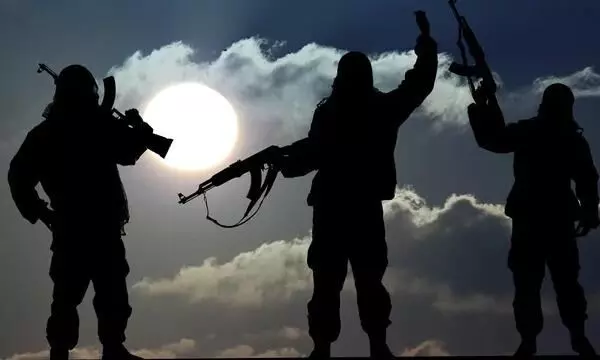Terrorist Attacks
ISLAMABAD: The country has seen a significant surge in terrorist attacks, with 59 incidents recorded across Pakistan in August 2024, compared to 38 in July, according to the Pak Institute for Peace Studies (PIPS), an Islamabad-based think tank. These attacks resulted in 84 deaths and injuries to 166 others, highlighting a troubling escalation in violence.
Khyber Pakhtunkhwa (KP) and Balochistan were the most affected regions, with 29 and 28 attacks, respectively, while two incidents were reported in Punjab. In Balochistan, the 28 terrorist attacks led to 57 deaths and injuries to 84 people.
Most casualties were linked to the banned Balochistan Liberation Army (BLA), which orchestrated a series of coordinated attacks on August 26.
These attacks targeted security forces, non-Baloch residents (primarily Punjabis), and national infrastructure across more than seven districts in the province, leading to widespread destruction and loss of life.
Khyber Pakhtunkhwa faced 29 terrorist attacks, resulting in 25 deaths and 80 injuries. The perpetrators included the banned Tehreek-i-Taliban Pakistan (TTP), Hafiz Gul Bahadur Group, Lashkar-i-Islam, Islamic State-Khorasan (IS-K), and several local Taliban factions. In Punjab, two attacks were reported, resulting in minor injuries to civilians and the deaths of two attackers.
Security forces and the Counter Terrorism Departments (CTDs) of the police carried out 12 anti-militant operations in August, slightly more than the 11 conducted in July.
During these operations, 88 militants were killed, but the security forces also faced losses, with 15 soldiers and three policemen martyred. Eight of these operations occurred in Khyber Pakhtunkhwa, and the remaining four in Balochistan.
The PIPS monthly security report highlighted the BLA’s escalating violent activities, noting the group’s use of high-impact attacks and sophisticated tactics, such as deploying female suicide bombers.
On August 26, coinciding with the anniversary of Baloch chieftain Nawab Akbar Bugti’s death, the BLA launched coordinated attacks across Balochistan. The group’s use of vehicle-borne explosives and the involvement of a large number of militants in these attacks underscore their growing capabilities.
The report also pointed out the BLA’s new tactics of targeting Punjabis on highways by checking identity cards. Such actions appear to aim at exacerbating tensions between Balochistan and the central government.
The BLA positions itself as a defender of Baloch interests, exploiting local grievances such as enforced disappearances and the exploitation of natural resources. As political processes fail to address these issues, there is a risk that more Baloch citizens might turn towards supporting the group.
To counter the growing threat posed by the BLA, the report urges the government to create political and social opportunities for the Baloch people, fostering dialogue and addressing their grievances.
Additionally, it stresses the need for an urgent investigation into the BLA’s sources of training, weaponry, and funding.
The report also advises Pakistan to work closely with Afghanistan and Iran to develop a joint counterterrorism and border security strategy, emphasizing regional cooperation as a crucial element in combating terrorism and ensuring stability.










